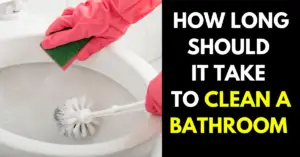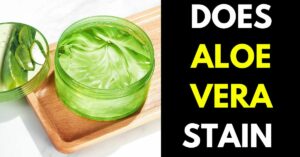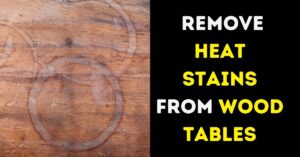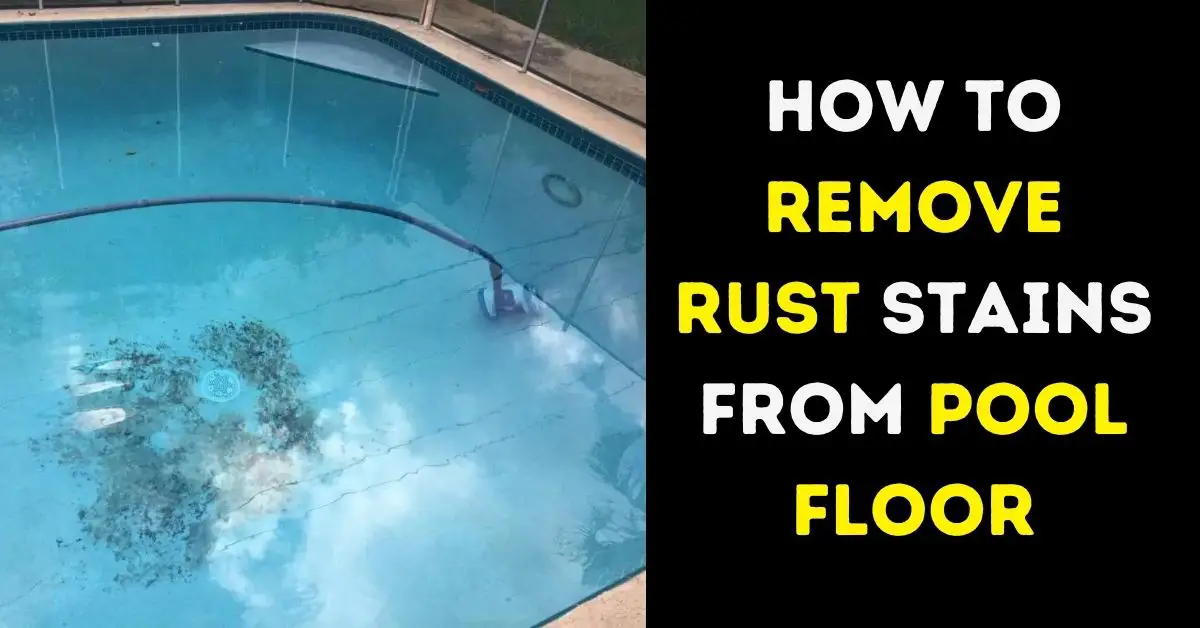
Maintaining a clean pool is not just about aesthetics; it’s also crucial for a safe and enjoyable swimming experience. However, a common challenge pool owners face is the unsightly presence of rust stains on the pool floor. In this post, I’ll provide you with a comprehensive overview of the steps to effectively remove these stubborn rust stains, helping you restore the pristine beauty of your pool. So, let’s dive right in and discover how to remove rust stains from pool floor!
How to Remove Rust Stains from Pool Floor
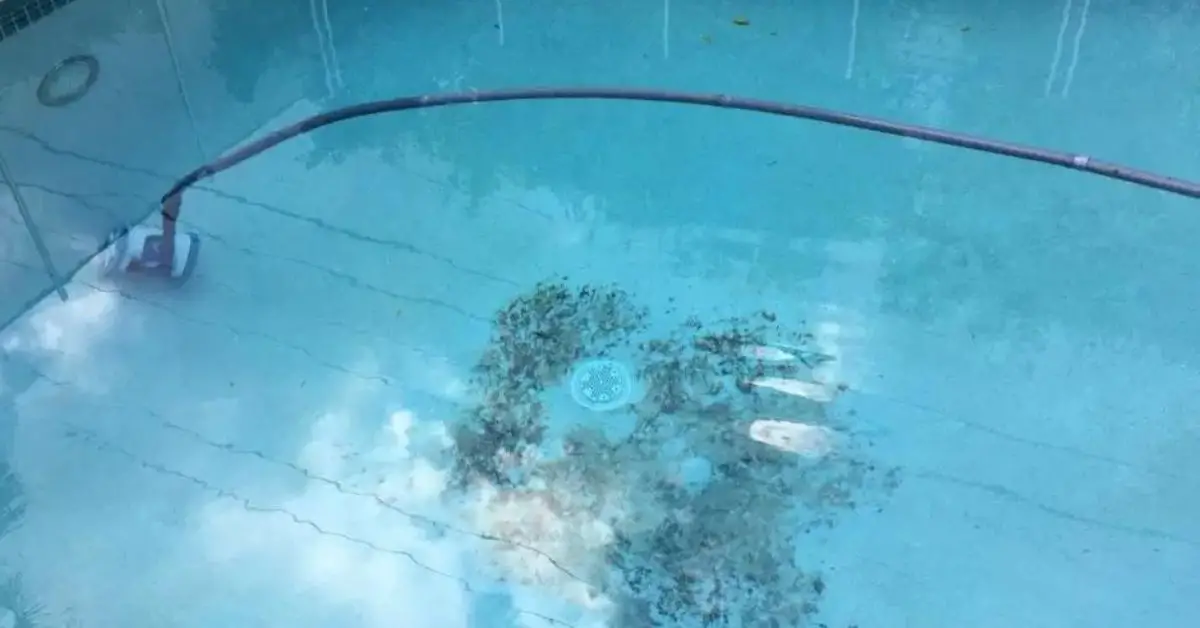
Rust stains on your pool floor can be an eyesore, but fear not; there are effective methods to bid them farewell. In this section, we’ll explore natural rust stain removal techniques and the importance of some good old-fashioned elbow grease.
Lemon Juice and Salt Method
What you’ll need:
- Fresh lemons or bottled lemon juice
- Table salt
- Scrubbing brush
Steps:
- Squeeze fresh lemon juice directly onto the rust stain.
- Sprinkle a generous amount of table salt over the lemon juice.
- Allow the mixture to sit on the stain for about 5-10 minutes.
- Use a scrubbing brush to gently scrub the stain in a circular motion.
- Rinse the area thoroughly with clean water.
Note: Lemon juice’s acidity and the abrasive nature of salt work together to break down and lift the rust stain.
Baking Soda and Vinegar Method
What you’ll need:
- Baking soda
- White vinegar
- Scrubbing brush
Steps:
- Create a paste by mixing baking soda with enough white vinegar to form a thick consistency.
- Apply the paste directly onto the rust stain.
- Let it sit for 15-20 minutes; you may notice fizzing as the reaction occurs.
- Using a scrubbing brush, gently scrub the stained area.
- Rinse the pool floor thoroughly with clean water.
Note: The bubbling action created by the vinegar and baking soda mixture helps break down and loosen the rust stain.
Vitamin C Tablet Method
What you’ll need:
- Vitamin C tablets (ascorbic acid)
- A plastic bag or cloth
- Hammer or mallet
- Scrubbing brush
Steps:
- Crush several vitamin C tablets to create a fine powder. Alternatively, you can use ascorbic acid powder.
- Sprinkle the vitamin C powder directly onto the rust stain.
- Dampen a plastic bag or cloth and place it over the powder to keep it in contact with the stain.
- Leave it in place for 15-20 minutes.
- Use a scrubbing brush to gently agitate the area and work in the powder.
- Remove the bag or cloth and rinse the pool floor thoroughly with clean water.
Note: Vitamin C, or ascorbic acid, is a powerful rust stain remover that works by reducing the iron in the rust.
The Role of Elbow Grease: Scrubbing and Brushing
No matter which method you choose, scrubbing and brushing play a vital role in rust stain removal. Use a firm-bristle pool brush or scrubbing brush to work the chosen solution into the stain. Be patient and persistent, as some stains may require several rounds of scrubbing.
Repeating the Process for Stubborn Stains
For particularly stubborn rust stains, don’t be discouraged if the stain doesn’t disappear completely after the first attempt. You may need to repeat the chosen method a few times to achieve the desired results. Additionally, consider professional help if the stain persists despite your efforts.
With these natural rust stain removal methods and a little elbow grease, you’re well on your way to enjoying a rust-free pool floor once again.
Prevention and Maintenance
Preventing rust stains on your pool floor is not only easier than dealing with them but also crucial for the long-term health of your pool. In this section, we’ll explore some proactive steps you can take to keep those pesky rust stains at bay.
Tips for Preventing Rust Stains in the Future
1. Regular Pool Maintenance
Maintaining a clean and well-balanced pool is the first line of defense against rust stains. Here’s what you can do:
- Skim and Vacuum: Regularly skim the pool surface to remove debris, and use a pool vacuum to clean the floor and walls. This prevents foreign particles from settling and potentially causing rust stains.
- Check and Clean Filters: Keep your pool filters clean and in good working order. Clogged filters can lead to water impurities that may contribute to rust formation.
2. Proper Water Chemistry
Maintaining the right chemical balance in your pool water is crucial for preventing rust and other types of stains. Follow these guidelines:
- pH Levels: Keep the pH levels of your pool water within the recommended range (usually between 7.4 and 7.6). This helps prevent corrosion of metal pool components, which can lead to rust.
- Chlorine Levels: Ensure your pool has adequate chlorine levels to prevent algae and bacterial growth. Algae and bacteria can create conditions conducive to rust formation.
- Alkalinity and Calcium Hardness: Regularly check and adjust alkalinity and calcium hardness levels as needed to maintain water balance.
3. Monitoring Metal Content in the Water
Many pool owners are unaware that the water itself can contribute to rust problems. Here’s how to stay on top of it:
- Use a Metal Sequestrant: Consider adding a metal sequestrant to your pool water. This chemical helps bind metal ions, preventing them from reacting and forming rust stains.
- Regular Testing: Use a metal testing kit to check the concentration of metals in your pool water. If the levels are high, take action to reduce them.
Maintaining a Routine Pool Cleaning Schedule
Prevention isn’t just about chemicals and water balance; it’s also about regular cleaning. Here’s how you can establish a cleaning routine that keeps rust stains away:
- Brushing and Skimming: Regularly brush the pool floor and walls to prevent debris and sediments from settling. Use a pool skimmer to remove leaves, insects, and other organic matter from the surface.
- Vacuuming: Invest in a reliable pool vacuum or robotic cleaner that can efficiently remove dirt and particles from the pool floor.
- Tile Cleaning: Don’t forget to clean the pool tiles regularly. Calcium deposits and rust can accumulate on the tile’s surface, affecting the overall aesthetics of your pool.
- Professional Inspections: Periodically, consider having your pool inspected by a professional. They can identify potential issues with pool equipment or structural components that may contribute to rust problems.
By following these tips and maintaining a routine cleaning schedule, you’ll significantly reduce the chances of rust stains marring your pool’s pristine beauty. Remember, prevention is the key to a rust-free pool and many carefree swims to come.
Final Thoughts
In conclusion, rust stains can be a common and persistent problem for pool owners. However, with the right procedures and a bit of effort, they can be effectively removed. The lemon juice and salt method is a great natural option that can be easily done at home. It’s important to remember that regular maintenance and cleaning can prevent rust stains from forming in the first place. By keeping your pool clean and well-maintained, you can ensure a safe and enjoyable swimming experience for all. So, don’t let rust stains ruin your pool fun, follow these tips and enjoy a pristine pool floor all summer long.

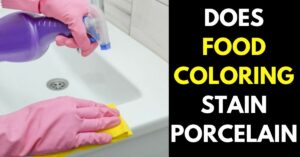
![Do I Need Soap Or Detergent To Clean Clothes Stains? [Alternatives] 4 Do I Need Soap Or Detergent To Clean Clothes?](https://cleanservant.com/wp-content/uploads/2023/08/Dawn-Dish-Detergent-To-Clean-Car-Leather-Upholstery-1-300x157.jpg)
